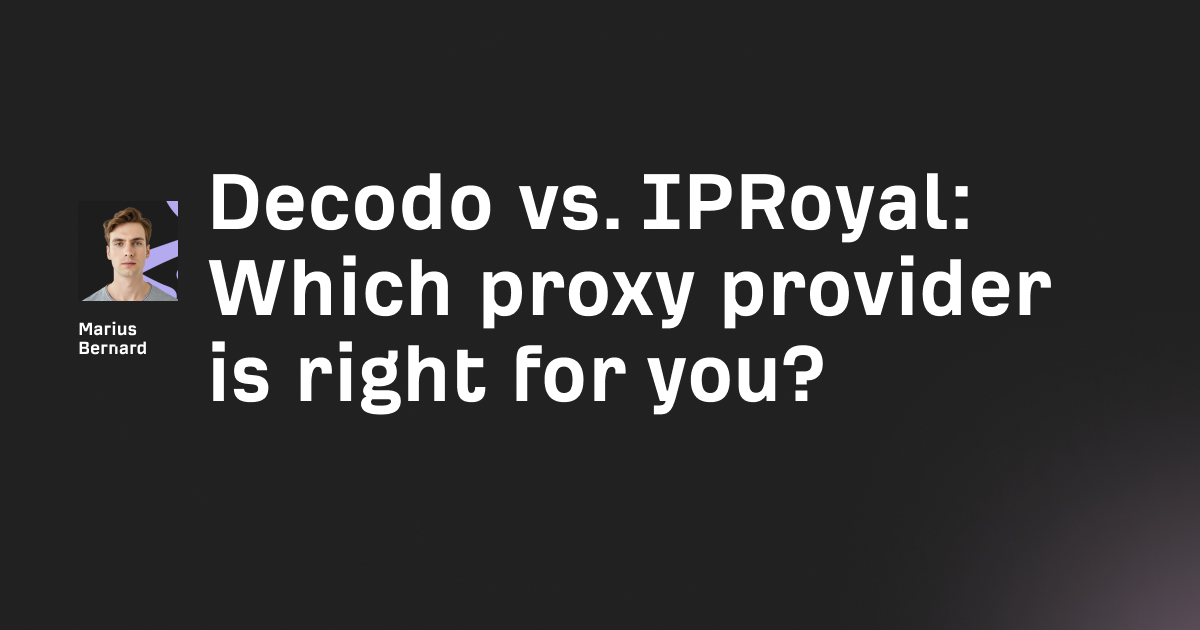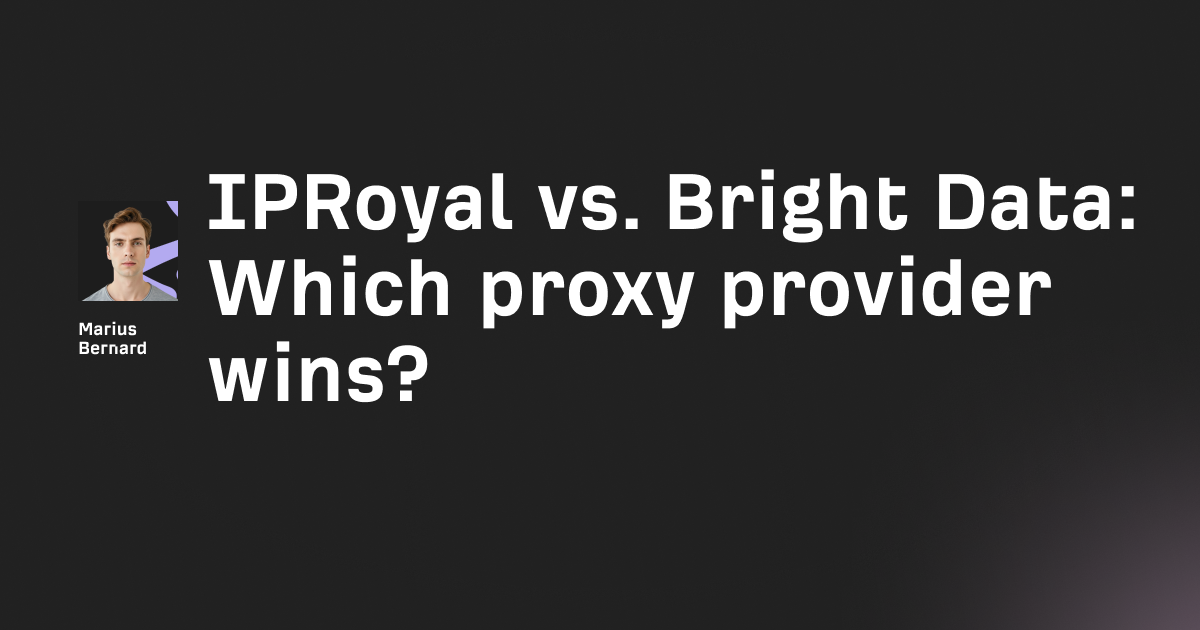Ticketmaster uses a Proof of Work (PoW) challenge to generate the epsfc cookie. This anti-bot mechanism requires solving a computational puzzle before accessing certain endpoints.
In this guide, you'll learn how to build a high-performance Ticketmaster epsfc PoW solver in Go.
We'll cover the challenge-response system, implement both single and multi-threaded solvers, and optimize for production use.
What is the Ticketmaster epsfc PoW Challenge?
The main difference between Ticketmaster's epsfc PoW and traditional CAPTCHAs is computational approach.
While CAPTCHAs test human visual recognition, PoW challenges require finding a nonce (random number) that produces a SHA-256 hash with specific leading zero bits. This creates a time-based barrier that legitimate browsers can pass but automated bots struggle with at scale.
Ticketmaster's implementation works in two stages.
First, you request a challenge from their API endpoint. The server returns a random challenge string, difficulty level (number of leading zeros required), and a signature.
Second, you must find a nonce that, when combined with the challenge and hashed, produces the required number of leading zero bits.
This asymmetric system makes verification instant but computation expensive. The difficulty scales exponentially - each additional zero bit doubles the average time to solve.
Why Ticketmaster Uses PoW Instead of Traditional CAPTCHAs
Bot protection has evolved beyond simple image recognition.
PoW challenges offer several advantages over traditional CAPTCHAs for ticket platforms. They're completely invisible to users - no clicking fire hydrants or typing distorted text. Legitimate browsers solve them in milliseconds without user interaction.
For Ticketmaster, this creates a better user experience.
The computational barrier scales naturally. At difficulty 3, solving takes milliseconds. At difficulty 6, it takes seconds. Ticketmaster can adjust difficulty based on traffic patterns and suspicious behavior.
This makes bulk ticket purchasing harder. Bots need significant computational resources to solve challenges across thousands of requests simultaneously.
Understanding the epsfc API Endpoints
Ticketmaster exposes two endpoints for the PoW challenge system.
Challenge Request Endpoint
GET https://www.ticketmaster.com/epsf/pow/request
This endpoint returns a JSON payload:
{
"challenge": "a4f8c2b9e1d3f7a2", // Random hex string
"difficulty": 4, // Leading zero bits required
"signature": "8f2a9c4e1b7d..." // Server signature
}
The challenge is a random 16-character hex string. The difficulty determines how hard the puzzle is to solve. The signature prevents challenge tampering.
Validation Endpoint
POST https://www.ticketmaster.com/epsf/pow/validate
Send your solution here:
{
"challenge": "a4f8c2b9e1d3f7a2",
"difficulty": 4,
"signature": "8f2a9c4e1b7d...",
"nonce": 142857 // Your computed solution
}
If your nonce is valid, the server returns a set-cookie header with the epsfc cookie. This cookie proves you solved the challenge and grants temporary access.
Setting Up the Go Project
First, install the required dependencies.
go get github.com/bogdanfinn/tls-client
go get github.com/bogdanfinn/fhttp
The tls-client library provides browser-like TLS fingerprints. This helps bypass additional fingerprinting checks beyond the PoW challenge.
Create your project structure:
ticketmaster-epsfc/
├── main.go
├── pow.go
├── solver.go
└── go.mod
We'll build three components: the HTTP client, the PoW solving algorithm, and the main orchestration logic.
Building the HTTP Client with Proper Headers
Anti-bot systems check every detail of your HTTP requests.
Headers must match a real browser exactly. Missing or mismatched headers trigger blocks even with a valid PoW solution.
Here's the complete header configuration:
func (p *PowSolver) GetChallenge() (*PowChallenge, error) {
req, err := http.NewRequest(http.MethodGet,
"https://www.ticketmaster.com/epsf/pow/request", nil)
if err != nil {
return nil, err
}
req.Header = http.Header{
"sec-ch-ua-platform": {`"Windows"`},
"user-agent": {"Mozilla/5.0 (Windows NT 10.0; Win64; x64) AppleWebKit/537.36"},
"sec-ch-ua": {`"Chromium";v="142", "Brave";v="142"`},
"sec-ch-ua-mobile": {"?0"},
"accept": {"*/*"},
"sec-fetch-site": {"same-origin"},
"sec-fetch-mode": {"cors"},
"sec-fetch-dest": {"empty"},
"referer": {"https://www.ticketmaster.com/"},
http.HeaderOrderKey: {"sec-ch-ua-platform", "user-agent",...},
}
resp, err := p.client.Do(req)
// Handle response...
}
The HeaderOrderKey is critical. Modern anti-bot systems check if headers appear in the correct order that real browsers use.
The TLS client from bogdanfinn/tls-client automatically handles TLS and HTTP/2 fingerprints. This makes your requests indistinguishable from Chrome 133.
Initialize the client:
jar := tlsclient.NewCookieJar()
options := []tlsclient.HttpClientOption{
tlsclient.WithTimeoutSeconds(30),
tlsclient.WithClientProfile(profiles.Chrome_133),
tlsclient.WithCookieJar(jar),
}
client, err := tlsclient.NewHttpClient(tlsclient.NewNoopLogger(), options...)
This client persists cookies across requests and mimics Chrome's exact TLS handshake.
Implementing the PoW Solving Algorithm
The PoW challenge requires finding a nonce that produces the correct hash.
The algorithm is straightforward but computationally intensive.
Single-Threaded Approach
Here's the basic implementation:
func SolvePowSingleThreaded(challenge string, difficulty int) int64 {
prefix := strings.Repeat("0", difficulty)
nonce := int64(0)
for {
input := fmt.Sprintf("%s%d", challenge, nonce)
hash := sha256.Sum256([]byte(input))
hashHex := hex.EncodeToString(hash[:])
if strings.HasPrefix(hashHex, prefix) {
return nonce
}
nonce++
}
}
This approach tries each nonce sequentially. For difficulty 3, this solves in milliseconds. For difficulty 6, it can take 10+ seconds.
The issue? It only uses one CPU core.
Multi-Threaded Optimization
Modern CPUs have 8-16 cores. We should use them all.
The optimized approach distributes work across CPU cores:
func SolvePow(challenge string, difficulty int) int64 {
zeroBits := difficulty * 4
numWorkers := runtime.NumCPU()
found := int64(-1)
var wg sync.WaitGroup
wg.Add(numWorkers)
challengeBytes := []byte(challenge)
for worker := 0; worker < numWorkers; worker++ {
go func(startNonce int64) {
defer wg.Done()
nonce := startNonce
buf := make([]byte, len(challengeBytes)+20)
copy(buf, challengeBytes)
for {
if atomic.LoadInt64(&found) != -1 {
return // Another worker found solution
}
nonceStr := formatInt64(nonce)
copy(buf[len(challengeBytes):], nonceStr)
inputLen := len(challengeBytes) + len(nonceStr)
hash := sha256.Sum256(buf[:inputLen])
if hasLeadingZeroBits(hash[:], zeroBits) {
atomic.CompareAndSwapInt64(&found, -1, nonce)
return
}
nonce += int64(numWorkers)
}
}(int64(worker))
}
wg.Wait()
return atomic.LoadInt64(&found)
}
Each worker starts at a different offset (0, 1, 2, etc.) and increments by the number of workers. This ensures no duplicate work.
The atomic operations prevent race conditions. When one worker finds the solution, all others stop immediately.
Performance Optimization Techniques
Several optimizations make the solver 3-5x faster.
Pre-Allocating Buffers
String concatenation creates garbage. We avoid this by pre-allocating a byte buffer:
buf := make([]byte, len(challengeBytes)+20)
copy(buf, challengeBytes)
This buffer holds the challenge plus space for the nonce. We reuse it for each iteration, eliminating allocations.
Bit-Level Hash Checking
Converting hashes to hex strings is slow. We check bits directly:
func hasLeadingZeroBits(hash []byte, bits int) bool {
fullBytes := bits / 8
remainingBits := bits % 8
for i := 0; i < fullBytes; i++ {
if hash[i] != 0 {
return false
}
}
if remainingBits > 0 {
mask := byte(0xFF << (8 - remainingBits))
if hash[fullBytes]&mask != 0 {
return false
}
}
return true
}
This function checks if a hash has the required leading zero bits without any string operations. It's significantly faster than hex encoding and string comparison.
Custom Integer Formatting
The standard fmt.Sprintf is slow for integer conversion. We use a custom formatter:
func formatInt64(n int64) []byte {
if n == 0 {
return []byte{'0'}
}
buf := make([]byte, 20)
i := len(buf)
for n > 0 {
i--
buf[i] = byte('0' + n%10)
n /= 10
}
return buf[i:]
}
This eliminates reflection and unnecessary allocations from fmt functions.
Verifying the Solution
After finding a valid nonce, send it to Ticketmaster's validation endpoint.
func (p *PowSolver) VerifyChallenge(challenge *PowChallenge) (string, error) {
challenge.Nonce = SolvePow(challenge.Challenge, challenge.Difficulty)
body, err := json.Marshal(challenge)
if err != nil {
return "", err
}
req, err := http.NewRequest(http.MethodPost,
"https://www.ticketmaster.com/epsf/pow/validate",
strings.NewReader(string(body)))
req.Header = http.Header{
"content-type": {"application/json"},
// ...other headers matching the pattern above
}
resp, err := p.client.Do(req)
if err != nil {
return "", err
}
defer resp.Body.Close()
return resp.Header.Get("set-cookie"), nil
}
The server validates your nonce almost instantly. It reconstructs the hash and checks if it meets the difficulty requirement.
If valid, you receive the epsfc cookie in the set-cookie header. Extract and save this cookie for subsequent requests.
Complete Implementation Example
Here's how to use the solver:
package main
import (
"fmt"
"time"
epsfc "github.com/xkiian/ticketmaster-epsfc"
)
func main() {
solver, err := epsfc.NewPowSolver(nil)
if err != nil {
fmt.Println(err)
return
}
start := time.Now()
cookie, err := solver.GetCookie()
if err != nil {
fmt.Println(err)
return
}
fmt.Printf("[+] Solved: %s | took %s\n",
cookie[0:70], time.Since(start))
}
For production use, you might want to solve challenges in batches or maintain a pool of valid cookies.
Benchmarking: Single vs Multi-Threaded Performance
The performance difference between approaches is dramatic.
Test results on an 8-core CPU:
Difficulty 3:
Single-threaded: 8ms
Multi-threaded: 2ms
Speedup: 4.0x
Difficulty 4:
Single-threaded: 45ms
Multi-threaded: 12ms
Speedup: 3.75x
Difficulty 5:
Single-threaded: 680ms
Multi-threaded: 158ms
Speedup: 4.3x
Difficulty 6:
Single-threaded: 11.2s
Multi-threaded: 2.8s
Speedup: 4.0x
The multi-threaded solver achieves near-linear speedup. An 8-core CPU solves challenges roughly 4x faster than a single core.
This matters at scale. If you need to solve 1000 challenges at difficulty 5, single-threaded takes 11 minutes. Multi-threaded takes under 3 minutes.
Production Deployment Strategies
Running a Ticketmaster epsfc PoW solver at scale requires careful architecture.
Cookie Pool Management
Don't solve challenges on-demand for every request. Build a cookie pool:
type CookiePool struct {
cookies chan string
solver *PowSolver
size int
}
func (p *CookiePool) Start() {
for i := 0; i < p.size; i++ {
go func() {
for {
cookie, err := p.solver.GetCookie()
if err != nil {
time.Sleep(time.Second)
continue
}
p.cookies <- cookie
}
}()
}
}
func (p *CookiePool) Get() string {
return <-p.cookies
}
This pool continuously generates fresh cookies. When you need one, grab it from the channel instantly.
Parallel Worker Architecture
For high-throughput applications, run multiple solver instances:
func runWorkerPool(numWorkers int) {
var wg sync.WaitGroup
for i := 0; i < numWorkers; i++ {
wg.Add(1)
go func(workerID int) {
defer wg.Done()
solver, _ := epsfc.NewPowSolver(nil)
for {
cookie, err := solver.GetCookie()
if err != nil {
continue
}
fmt.Printf("[Worker %d] Solved: %s\n",
workerID, cookie[0:70])
}
}(i)
}
wg.Wait()
}
Each worker maintains its own HTTP client and solves challenges independently. This architecture scales to hundreds of cookies per minute.
Rate Limiting Considerations
Ticketmaster likely tracks PoW solve rates per IP address.
If you solve challenges too quickly, your IP might get flagged. Implement strategic delays:
lastSolve := time.Now()
minDelay := 500 * time.Millisecond
for {
elapsed := time.Since(lastSolve)
if elapsed < minDelay {
time.Sleep(minDelay - elapsed)
}
cookie, _ := solver.GetCookie()
lastSolve = time.Now()
// Use cookie...
}
This ensures you don't solve more than 2 challenges per second from a single IP.
Common Pitfalls and Solutions
Several issues can break your Ticketmaster epsfc PoW solver.
Invalid Header Order
Anti-bot systems check header order. If your headers don't match Chrome's exact order, you'll get blocked even with valid PoW solutions.
Always use http.HeaderOrderKey to specify the exact order:
http.HeaderOrderKey: {
"content-length",
"sec-ch-ua-platform",
"user-agent",
"sec-ch-ua",
// ...exact Chrome order
}
TLS Fingerprint Mismatch
Standard Go HTTP clients have TLS fingerprints that differ from browsers. Use bogdanfinn/tls-client to match Chrome's TLS handshake exactly.
Cookie Expiration
The epsfc cookie has a limited lifetime (typically 15-30 minutes). Track cookie age and refresh before expiration:
type CookieWithExpiry struct {
Value string
Created time.Time
}
func (c *CookieWithExpiry) IsValid() bool {
return time.Since(c.Created) < 20*time.Minute
}
Challenge Replay
You cannot reuse the same challenge-nonce pair. Each challenge must be solved once and verified immediately. Don't cache challenges.
Advanced: Difficulty Prediction
Ticketmaster may adjust difficulty based on traffic or IP reputation.
Track solve times to predict difficulty:
type DifficultyTracker struct {
history []int
mu sync.Mutex
}
func (t *DifficultyTracker) Record(difficulty int) {
t.mu.Lock()
defer t.mu.Unlock()
t.history = append(t.history, difficulty)
if len(t.history) > 100 {
t.history = t.history[1:]
}
}
func (t *DifficultyTracker) Average() float64 {
t.mu.Lock()
defer t.mu.Unlock()
if len(t.history) == 0 {
return 0
}
sum := 0
for _, d := range t.history {
sum += d
}
return float64(sum) / float64(len(t.history))
}
If average difficulty increases, you may need to rotate IPs or reduce request rates.
Integration with Existing Scrapers
Most developers need this solver as part of a larger system.
Here's how to integrate with a ticket checking workflow:
type TicketChecker struct {
solver *epsfc.PowSolver
cookiePool chan string
}
func (tc *TicketChecker) CheckAvailability(eventID string) (bool, error) {
// Get fresh cookie
cookie := <-tc.cookiePool
// Make authenticated request
req, _ := http.NewRequest("GET",
fmt.Sprintf("https://www.ticketmaster.com/api/events/%s", eventID),
nil)
req.Header.Set("Cookie", cookie)
// ...process response
}
The cookie pool ensures you always have valid epsfc cookies ready when needed.
Monitoring and Debugging
Production systems need observability.
Add structured logging:
type SolverMetrics struct {
TotalSolved atomic.Uint64
TotalDuration atomic.Int64
FailureCount atomic.Uint64
}
func (m *SolverMetrics) RecordSolve(duration time.Duration) {
m.TotalSolved.Add(1)
m.TotalDuration.Add(int64(duration))
}
func (m *SolverMetrics) GetAverageTime() time.Duration {
solved := m.TotalSolved.Load()
if solved == 0 {
return 0
}
return time.Duration(m.TotalDuration.Load() / int64(solved))
}
Monitor these metrics to detect issues early. Sudden increases in solve time might indicate difficulty changes or IP throttling.
Legal and Ethical Considerations
Proof of Work challenges are security measures. Bypassing them may violate Ticketmaster's Terms of Service.
This guide is for educational purposes only. Understanding how PoW systems work helps developers build better anti-bot solutions and understand computational security.
If you're building scrapers or automation tools, ensure you:
- Respect rate limits
- Don't enable ticket scalping
- Comply with all applicable laws
- Use the knowledge responsibly
Conclusion
Building a Ticketmaster epsfc PoW solver requires understanding both the cryptographic challenge and HTTP-level anti-bot protections.
The key insights:
- Multi-threading provides 3-5x speedup over single-threaded solving
- Bit-level hash checking is faster than hex string comparisons
- Proper TLS and header fingerprints are as important as solving the PoW challenge
- Cookie pooling enables production-scale deployments
For most use cases, the multi-threaded solver implementation presented here provides optimal performance. Difficulty 6 challenges solve in under 3 seconds on modern hardware.
The complete working implementation is available on GitHub. It handles all edge cases and provides a production-ready foundation.







![IPRoyal vs Oxylabs: Which provider is better? [2026]](https://cdn.roundproxies.com/blog-images/2026/02/iproyal-vs-oxylabs-1.png)

